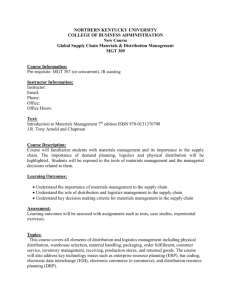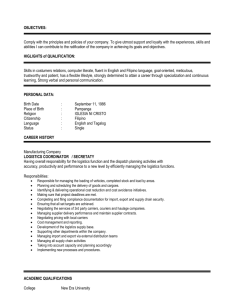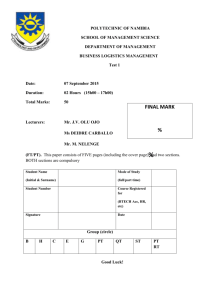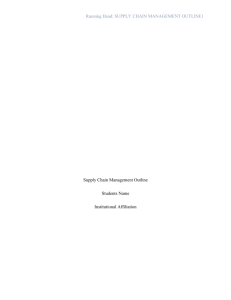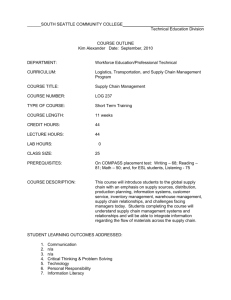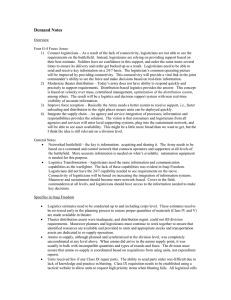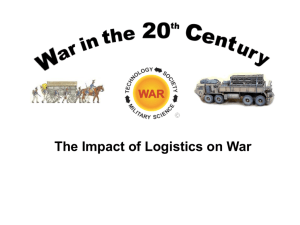Logistics
advertisement
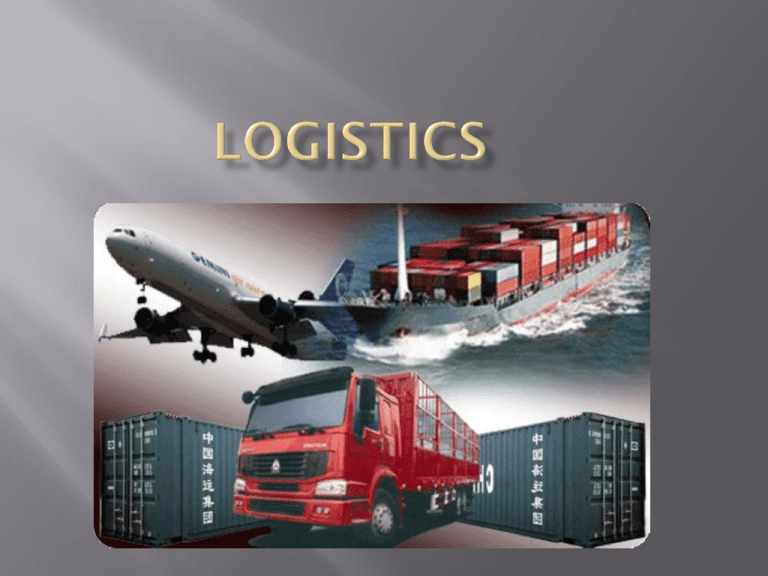
Logistics is the management of the flow of resources, between the point of origin and the point of destination in order to meet the requirements of customers or corporations. Logistics involves the integration of information, transportation, inventory, warehousing, material handling, and packaging, and oftentimes security. Today the complexity of production logistics can be modeled, analyzed, visualized and optimized by plant simulation software. Logistics can involve a wide variety of consumer goods such as food, IT materials, aerospace resources, and defense equipment. Logistics as a business concept evolved in the 1950s due to the increasing complexity of supplying businesses with materials and shipping out products in an increasingly globalized supply chain, leading to a call for experts called supply chain logisticians. Business logistics can be defined as "having the right item in the right quantity at the right time at the right place for the right price in the right condition to the right customer", and is the science of process and incorporates all industry sectors. The goal of logistics work is to manage the fruition of project life cycles, supply chains and resultant efficiencies. In business, logistics may have either internal focus (inbound logistics), or external focus (outbound logistics) covering the flow and storage of materials from point of origin to point of consumption (see supply chain management). The main functions of a qualified logistician include inventory management, purchasing, transportation, warehousing, consultation and the organizing and planning of these activities. Logisticians combine a professional knowledge of each of these functions to coordinate resources in an organization. There are two fundamentally different forms of logistics: one optimizes a steady flow of material through a network of transport links and storage nodes; the other coordinates a sequence of resources to carry out some project.
